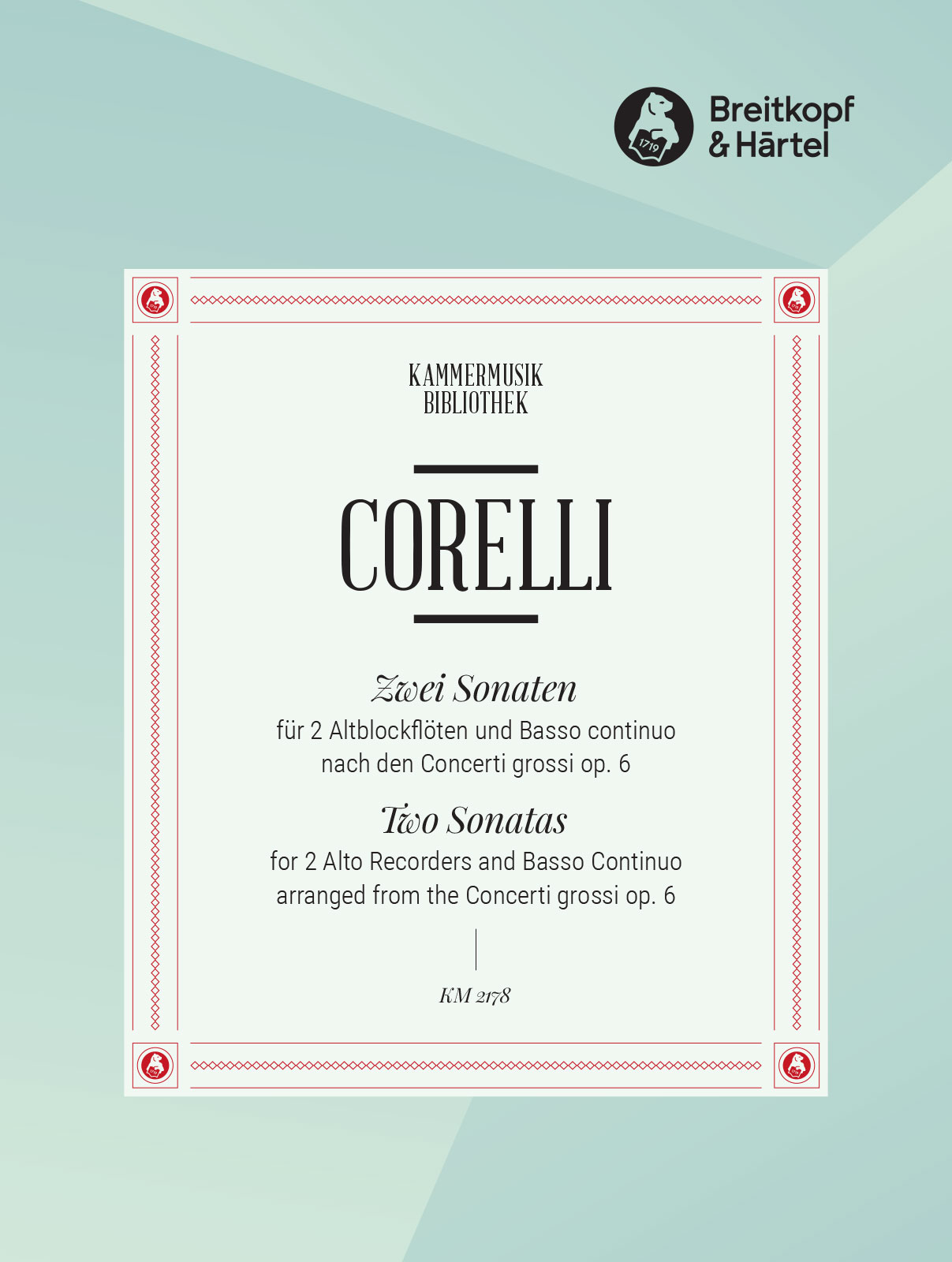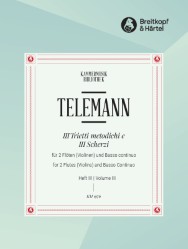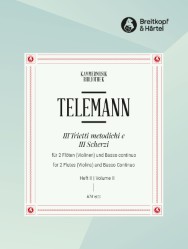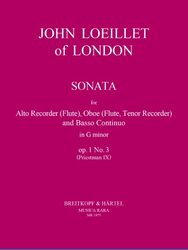2 Sonatas in F major based on the Concerti grossi Op. 6
Urtext

Composer: Corelli, Arcangelo
Instrumentation: 2 Flutes (or Violins) and Basso Continuo
Editor: Kubitschek, Ernst
Publisher: Breitkopf and Hartel
Digital Download – PDF
Shipping costs: No shipping
R.R.P £27.00
Our Price: £22.95




